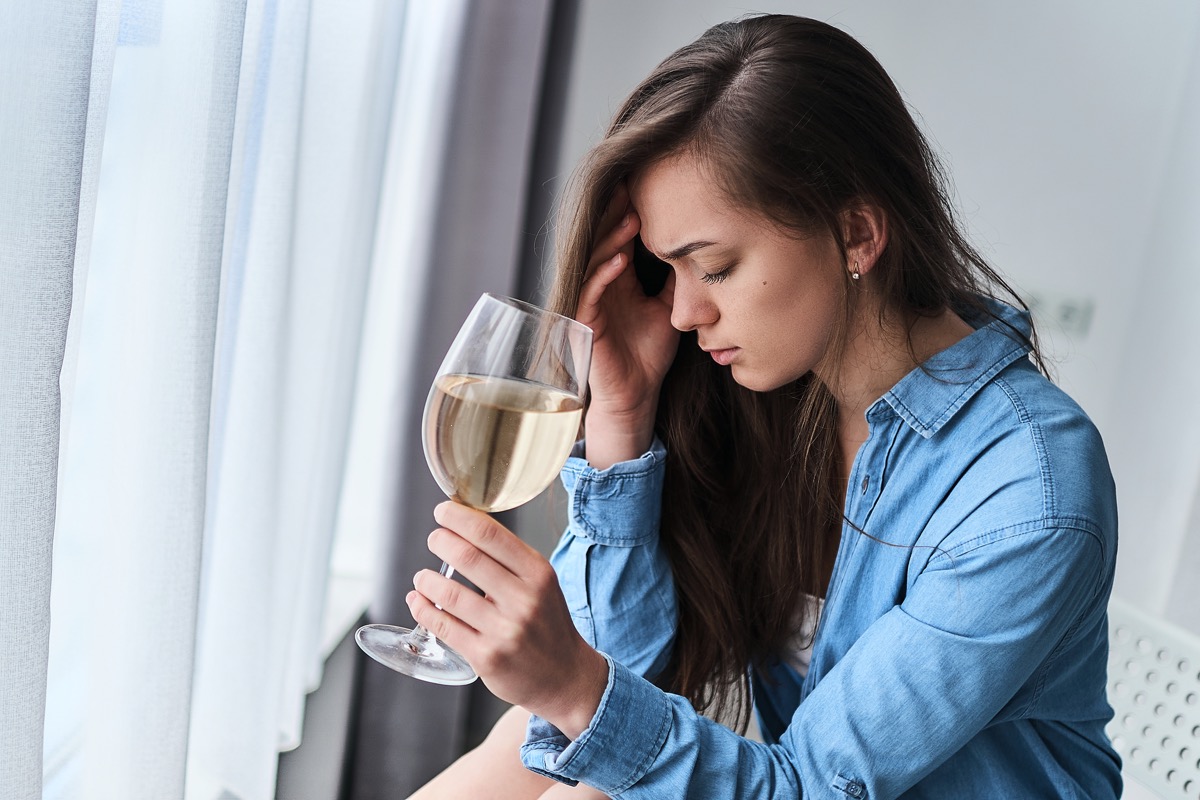One Major Side Effect of Drinking a Glass of Wine, Says Science

We're betting you've heard that drinking wine is good for your heart health…and you've used that factoid as an excuse to splurge on your favorite cabernet with dinner at least once before. But that's the worst reason to drink wine.
Not to burst your bubble, but the jury is still out on whether wine actually has any heart-boosting properties. Sure, it has antioxidants that might lower your LDL cholesterol and your cardiovascular inflammation. But that only applies to red wine, not white, and even then some studies say wine has health benefits and some say…ehhh, maybe not.
So are there any confirmed side effects from enjoying a glass of vino every night? Yes, but you're not gonna like it: drinking even just one glass of wine is a surefire way to mess with your sleep.
If you're surprised, we get it—most people associate drinking a glass of wine with getting drowsy, and some people even purposely use a glass of wine to help them unwind and drift off to sleep at night. If wine makes you sleepy, then how can it be bad for your nightly zzz's? (Related: 9 Eating Habits That Are Hurting Your Sleep, According to Doctors.)
The problem lies not in the start of your sleep cycle (i.e. the falling asleep part), but in the later stages. One glass of wine can for sure help you nod off; it has sedative and muscle relaxing properties. However, as your body starts to metabolize the alcohol, the sleepy effects wear off and cause disruptions in the second and third cycles of sleep—often about two to four hours after you initially dozed off.
If you're thinking "Okay, so what?" or assuming you can just roll over and go back to sleep, you should know that these alcohol-induced wakings can decrease the total amount of rapid eye movement (REM) sleep you get in a night.
This means you have a bigger problem than a night of less-than-stellar sleep: REM sleep is the deepest and most restorative kind of sleep there is, and not getting enough won't just leave you a little groggy in the morning. An ongoing deficit of sleep, also called sleep debt, can cause cognition impairments and increase your risk of certain health conditions, like mood disorders, diabetes and hypertension.
A recent 2020 study published in JAMA Neurology even linked reduced REM sleep to a higher incidence of death in older men as well as middle-aged men and women (yikes!).
Are you going to suffer terrible health effects with one infrequent glass of wine? Honestly, no. The amount of alcohol you drink definitely contributes to how much of these affects you feel. But the news isn't as good as you think: a 2018 study in JMIR Mental Health found that moderate and high amounts of alcohol clearly affected sleep…but so did low amounts, too, decreasing sleep quality by about 9%.
If you really want to drink a glass of wine with dinner on a regular basis, try to have it at least four hours before you normally hit the sack; that should give your body enough time to metabolize the alcohol and go back to normal, preventing any late-stage sleep cycle disruptions. And if you're thinking about cutting out the boose entirely, check out Side Effects of Giving Up Alcohol, According to Science.
For more healthy eating news, make sure to sign up for our newsletter!








